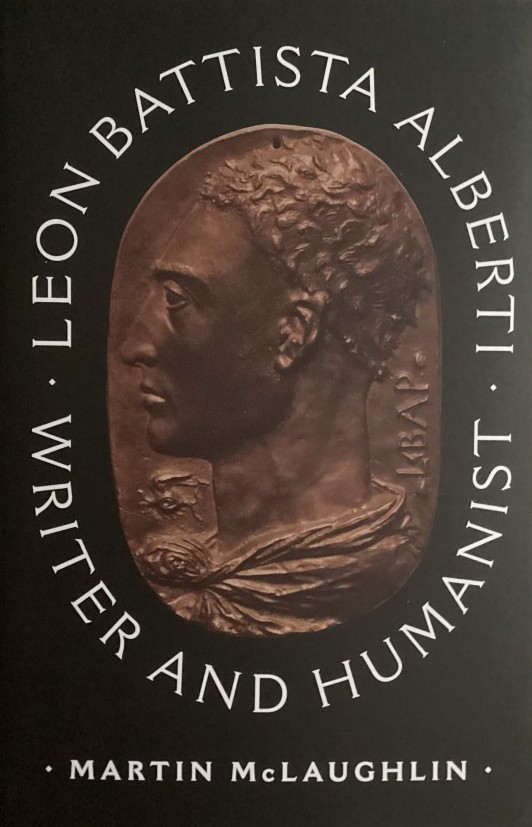Inspiring Older Readers
 posted on 15 Jul 2024
posted on 15 Jul 2024
Leon Battista Alberti: Writer and Humanist by Martin McLaughlin
My guess is that if you’ve ever heard of Leon Battista Alberti (1404 – 1472) it will be because of two things: you have an interest in the Italian Renaissance and you’re also keen on architecture. Martin Mclaughlin (Professor of Italian Studies at the University of Oxford from 2001-2017 and now emeritus fellow of Magdalen College) rather anticipates that this might be the case and sets out to show us that Alberti was much more – and specifically that he was, in addition, a major literary figure and Humanist thinker in both his formal Latin writing but also in the Italian vernacular, something that made him stand out from his contemporaries.
McLaughlin’s starting point for this study is to begin chipping away at some of the misconceptions that have built up around Alberti – many of which are ascribed to the work of the Swiss art theorist, Jacob Burckhardt and his 1860 work The Civilisation of the Renaissance in Italy. What seems to especially irk McLaughlin is the application by Burckhardt of the phrase ‘Renaissance or Universal Man’ to Alberti – rather suggesting skills and interests were broad rather than deep when in fact, Mclaughlin believes, his contribution to literature was profound.
Alberti was one of the first writers to produce an autobiography (written as if it were a biography) and all subsequent scholars have leaned on this when talking of his life and work but McLaughlin builds a case that shows Burckhardt’s selective omissions and interpretations of that text have resulted in a less than fully rounded portrait of the man.
In order to then take forward his case for the importance of Alberti as a literary humanist, Mclaughlin examines not just all of his output but also assesses the extent of the reading Alberti must have done to be able to write what he did. Not only is this an awesome display of intellectual power by the subject of the study but by the author too in tracing and reading these sources. As the book jacket notes tell us:
“He then turns to Alberti’s works, tracing his development as a writer through texts that range from an early comedy in Latin successfully passed off as the work of a fictitious ancient author to later philosophical dialogues written in the Italian vernacular (a revolutionary choice at the time); humorous works in Latin, including the first novel in that language since antiquity; and the famous treatises on painting and architecture.”
These two writers – Alberti and McLaughlin - may be separated by the best part of 800 years but they have clearly found their natural home together:
“McLaughlin also examines the astonishing range of Alberti’s ancient sources and how this reading influenced his writing; what the humanist read, he argues, often explains what he wrote, and what he wrote reflected his relentless industry and pursuit of originality.”
I’m not going to pretend this is an easy introduction for a layperson because clearly it isn’t and it isn’t aimed at that market. However, I would imagine that if you are a student of Renaissance history and literature this will be an absolute must for you – it’s a genuinely awe-inspiring piece of scholarship and research.
Available now from Princeton University Press in hardcover, you can get a copy from your local independent bookshop who will be happy to order it for you. Alternatively, you can go directly to the Princeton website and order your copy there.
Terry Potter
July 2024